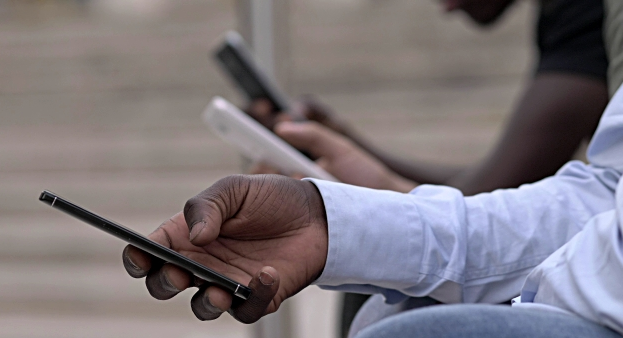High Court halts state plan to track mobile phones for tax compliance

Justice Chacha Mwita put the enforcement of the regulations on hold pending a hearing of a petition filed by civil rights group Katiba Institute on December 18.
The High Court has restrained the Communications Authority of Kenya (CA) from implementing a notice requiring Kenyans to submit their mobile phone details in a bid to enhance tax compliance.
CA had intended to collect the International Mobile Equipment Identification (IMEI) numbers of all mobile phones in use in Kenya together with details of users of the devices.
More To Read
- Kenya’s 5G users hit 1.5 million as adoption accelerates
- Mobile phone user awarded Sh400,000 after repeated unauthorised spam messages
- High Court nullifies Communications Authority's broadcast ban on June 25 demos
- KRA sets December 31 deadline for fuel stations to adopt eTIMS invoicing system
- Communications Authority dismisses claims of mandatory biometric data for SIM registration
- Outcry as Communications Authority proposes DNA rule for SIM registration
The authority issued the notice on October 24 requiring disclosure of IMEI numbers for mobile phone devices in use in Kenya before January 1, 2025.
Kenya Revenue Authority (KRA) issued a notice on November 5 indicating it will start implementing the regulations issued by the CA.
Justice Chacha Mwita put the enforcement of the regulations on hold pending a hearing of a petition filed by civil rights group Katiba Institute on December 18.
Katiba Institute sought orders to have the regulations stopped pending the hearing of the petition.
The petitioner sued the two institutions saying without safeguards, the disclosure of IMEI numbers risks the fundamental rights and freedoms of individuals and may lead to illegal and unwarranted state surveillance.
IMEI numbers are identifiers uniquely linked to individual mobile phone devices. Katiba Institute says the regulations are setting up the creation of a master database of IMEI numbers which threatens the right to privacy and is a building block towards unwarranted and unmitigated mass surveillance.
Within mobile network communications systems, the IMEI number creates the connection between a mobile phone device and a cellphone tower, allowing the mobile providers to pinpoint a phone's location within a 100-metre radius.
When connected with further personal information such as names or personal flight and customs information, IMEI is used or may be used to identify an individual and hence constitutes personal data.
"Without the proactive disclosure of a Data Protection Impact Assessment, it appears the (CA and (KRA's) intention to collect personal data without conducting data protection assessment is a violation of Data Protection Act," states lawyer Joshua Nyawa.
"The lack of sufficient safeguards can be exploited to stifle dissidents, monitor political opponents, or intimidate activists, creating a chilling effect on free speech and political engagement."
Nyawa accuses CA and KRA of acting contrary to the requirement that free and informed consent must be obtained prior to the collection of personal data, (CA and KRA) have resorted to duress threatening to deregister any mobile phone device whose IMEI number is not disclosed.
Nyawa says that without sufficient safeguards and guardrails to the collection of IMEI numbers, there is a real risk that Kenya will easily be turned into a surveillance state.
"This would violate the Bill of Rights and the Data Protection Act," says Nyawa.
He says the KRA purported to issue regulations to implement CA's notice, usurping Parliament's mandate.
The lawyer says the regulations issued by CA were neither tabled in Parliament nor subjected to public participation as required by law.
Top Stories Today












































